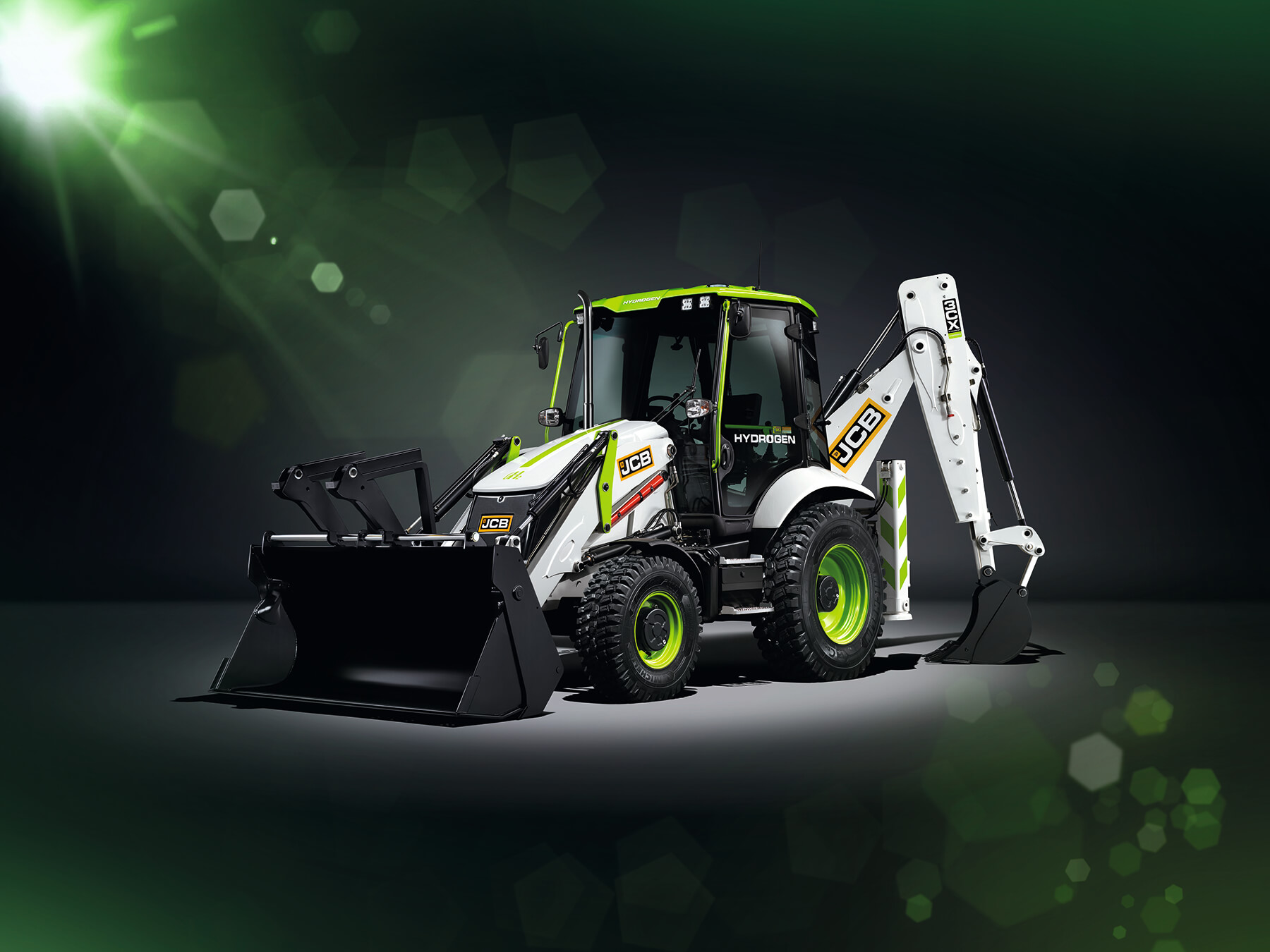Powerhouse: JCB’s economic contribution to the UK
Supporter: JCB
JCB’s total economic contribution (direct, indirect & induced) is equivalent to 1.2% of UK manufacturing sector GDP.
Above: JCB’s prototype hydrogen-powered backhoe loader
Like the whole automotive and machinery sectors, the Covid pandemic affected JCB’s production – both demand and the shortage of critical parts like semiconductors – and the digger manufacturer had to reduce headcount accordingly. In 2022, the company has bounced back to near full capacity at its 11 UK factories and is making particularly strong progress with its low/zero carbon powered equipment – hydrogen powered backhoes and its electric compact equipment range.
For one company it packs a huge punch, for manufactured output, GVA, exports, jobs and indirect jobs and purchasing power from UK companies. Here is a summary of the company’s contribution to the UK economy.
An independent analysis by Oxford Economics showed that:
JCB’s export revenues of over £1.2 billion make a significant contribution to the UK’s trade balance, accounting for 28% of all exports of construction and mining equipment from the UK.
JCB employs nearly three times as many people as it did 20-years ago. UK manufacturing jobs have fallen by more than 37% over the same time.
Overall, JCB contributes £2.3 billion to GDP, £664 million to the Exchequer and 37,400 jobs to the UK economy.
JCB is a leading global player
JCB is one of the world’s leading manufacturers of construction equipment. It sells over 300 different machines to customers in over 150 countries through its global network of 770 dealers and 2,000 depot locations. Recent years have been among the most successful in the company’s 77-year history. Annual turnover in 2019 was £4.1bn.
JCB is a British manufacturing success story and one of the UK’s biggest privately owned companies
JCB has grown to become one of the UK’s most respected manufacturing companies since it was established in 1945. As a privately-owned family business, it remains committed to manufacturing a broad range of innovative products in the UK, where 11 of its 22 factories are located. JCB is a leading exporter, with over 75% of its UK production sold to overseas markets. JCB accounts for 0.4% of all manufactured goods exported from the UK.
JCB is a leading UK employer
JCB employs over 15,000 people around the world, of whom over 7,500 work in the UK. As an employer in the manufacturing sector, these jobs are well-paid positions that add real value to the UK economy in terms of the taxes paid by employees to the Exchequer, together with National Insurance Contributions (NICs) paid by JCB.
JCB is a profitable UK enterprise
JCB is a productive and lean manufacturer of added-value products that generate profits, on which the company pays corporation tax, with retained profits reinvested back into the business to fund R&D and sales growth. Many raw materials and components used by JCB are purchased from UK suppliers, which employ people to support JCB and make profits from the trading relationship. l
JCB’s total economic contribution to the UK
JCB makes a large contribution to the UK economy
JCB’s contribution to the UK economy is significant. There is a direct impact through its manufacturing and service operations in the UK, an indirect impact through the UK supply chain in place to support JCB, an induced impact through spending by JCB employees and suppliers’ employees and a further catalytic impact through the company’s wider R&D activities. JCB’s UK dealers also make a large contribution to the UK economy.
“Now that the technology is here, the next step is to encourage global governments and authorities to take it up.”
Above: Some of the 160 young people employed by JCB as part of the company’s Early Career Talent programme
Above: JCB’s total economic contribution to the UK
Above: The JCB Pothole Pro, launched in January 2021







